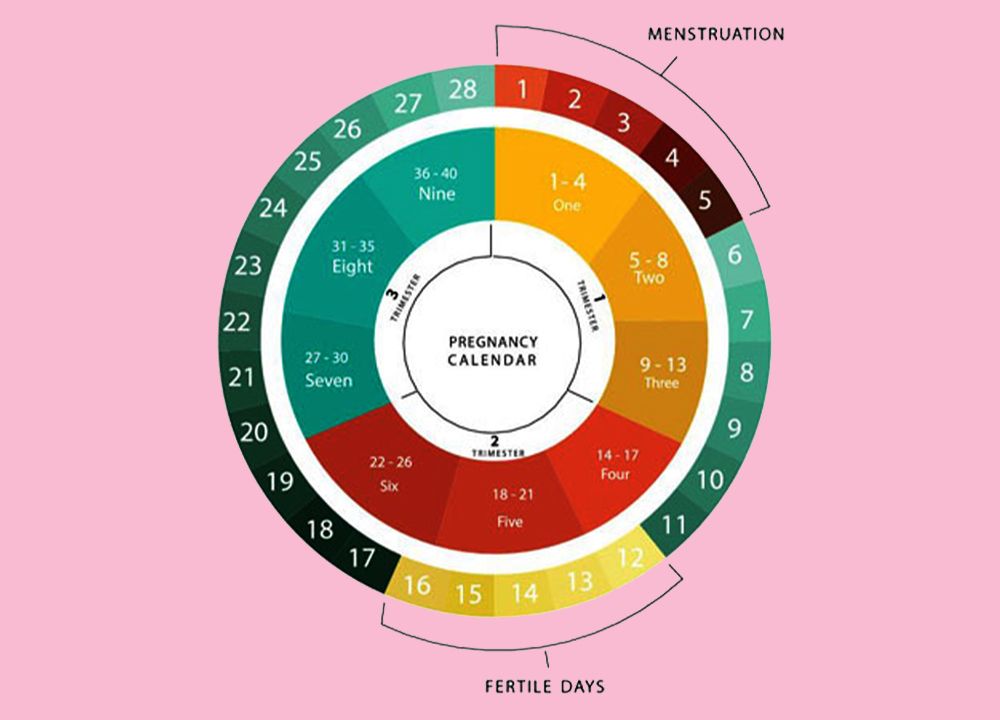Let’s just accept it: we like sex “safe sex”, but like too much of ice-cream increases your chance of diabetes, in the same manner, it would cause some unwarranted pregnancy. Starting a family is a wonderful step but only when you are prepared. When you are in a polygamous relationship, a missed period can make you extremely anxious. I would recommend you to always use contraceptives, as not only will it keep the baby at bay but also those STDs.
But some women, I would recommend only if you are with a steady partner, prefer to try natural contraceptive methods. On the outset, you should remember that it’s not 100% accurate and it cannot really be used by women whose periods are irregular due to many underlying problems like PCOS.
Understanding the Biology
You can get pregnant only on the days that an egg is present in the fallopian tube and sperm can travel and fertilize it. You become pregnant after the zygote (fertilized ovum with sperm cell) implants on your uterine wall. Every month the walls of uterus thicken in anticipation and when the fertilization doesn’t occur, it degenerates and you get your monthly menses. Sperm can live inside a woman for 5-6 days, while an egg after its release from the ovary is viable for only 24 hours maximum.
So in totality, you are fertile for around 6 days a month. Your menstrual cycle begins on the first day of your menstruation and extends till the start of the next period. For 70 % of women, they have a 28-day cycle and 14 days after the start of the cycle, ovulation takes place, aka, the most fertile period. By abstaining from sex during this period or asking your partner to not ejaculate inside your vagina you can ward off the pregnancy scare. But according to the Elite daily, there are 1 in 4 chances (25%) that you can get pregnant by this method.
There are different methods to calculate the days when you are ovulating, and these are known as Fertility Awareness Method (FAM):
- Calendar method
- Temperature method
- Cervical Mucus method
- Standard days method
The All-Important Calculation: Calculator Method
You need to keep a record of your periods for around 6-12 months, prior to adopting this method of contraception. The calendar method doesn’t work for women whose menstrual cycle is less than 27 days or more than 32 days. Note down the first day of your period and count the number of days in your cycle. To predict the fertile days, find the shortest cycle in your record and subtract 18 days from that cycle. In your current month count that number from the inception of your period.
To mark the last fertile days find the longest cycle from your history and subtract 11 days from it. This will help to mark the fertile and non-fertile days. Now you count this number in your current cycle from the day of inception.
Following the Protocol: Standard Days Method
This method of FAM can only be used by women with regular periods and doesn’t have a period of fewer than 26 days and not any more than 32 days. In this method, you can abstain from sex between days 8 to 19 of each cycle.
The Hotness Quotient: Basal Temperature Method
A spike in body temperature can confirm whether you are ovulating. You can take regular readings with a good quality basal thermometer before getting up from bed each morning, making sure that you had a good night’s sleep- a minimum of 6-8 hours. There is an increase in 0.5 to 1-degree rise in temperature for around 3 consecutive days, which signifies that you are ovulating and your body is ripe for fertilization. The other days are safe. Though you have to keep a regular tab to understand the days prior to ovulation, as the sperm can live in the uterus for around 5 days. Stress, alcohol, caffeine and erratic schedule can mess up the temperature graph.
The Discharge Down Under Cervical Mucus Method
The hormones that cause your menstruation also control the white discharge that we see throughout the month. By keeping track of it, you can determine the ovulating period. The days immediately after your periods are known as ‘dry days’, and during your ovulation, the discharge turns yellow, or white and cloudy and right before you start ovulating there is a lot more discharge and the consistency is like egg whites. When you get such discharges you should avoid vaginal sex or use other methods of contraception.
According to Planet Parenthood, another form of this method is the 2-day method. You need to ask yourself two questions: did I have discharge today and did I have discharge yesterday? If the answer is negative to both, you can have unprotected sex, if to one or both questions you answer yes, then get use some other forms of protection and can have safe sex.
Pregnancy and Period
 Pregnancy and Period
Pregnancy and PeriodWe all have numerous questions regarding period sex and pregnancy, let’s clear those doubts today. Safe Sex during periods can be quite icky but if you are into it, then just go ahead- but if you are one of those women who have a shorter cycle, then you have a higher chance of getting knocked up if you have safe sex during the last few days of your period. But those on normal or longer cycles, it is usually a safe period.
The span right after your period, you move onto that fertile period, so chances of getting pregnant are quite high. The days right before your menstruation is the safest. So, if you have been tracking your ovulation, then just wait for 48 hours and have unprotected sex! The fertility awareness method only works 75-83% of the time and works best when all the methods are used in tandem. You should consult a gynecologist for a better understanding of these natural methods of contraception. FAMs doesn’t have any side-effect like oral contraceptives.
But it won’t work for women with irregular periods if you are unable to keep a proper record of your menstrual cycle, and the partner doesn’t want to avoid safe sex during the unsafe days or you don’t use other methods of contraception during the ovulating period. It also doesn’t protect a woman against STDs or if you have any vaginal infection. It won’t stop you from being pregnant but just reduce the probability.
Also Read: Prevent Pregnancy After Unprotected Intercourse

